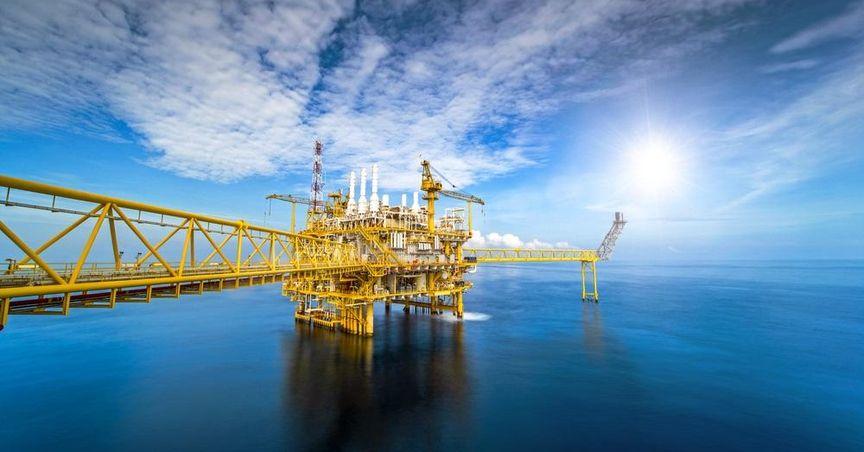Highlights:
- Stocks Surge Post-Budget: Jersey Oil and Gas (LSE:JOG) soared up to 60%, with other North Sea operators posting significant gains.
- Tax Rate Increased, Investment Relief Retained: The Energy Levy rose to 38%, with extended Decarbonisation Investment Allowance offering 80% relief on qualifying projects.
- Mixed Signals for Future Investment: Budget’s measures drive optimism but prompt companies to explore diversification due to continued high tax rates.
North Sea oil stocks surged following the UK’s Autumn Budget, which, despite some tax rate increases, offered less severe measures than initially feared by the energy sector. Chancellor Rachel Reeves increased the Energy Levy, or “windfall tax,” on the UK’s domestic oil and gas industry from 35% to 38%, lifting the effective tax rate to 78%. This places the UK among the highest-taxed regions globally for hydrocarbon production. However, Reeves extended some crucial relief measures for environmental investments, easing immediate concerns for companies involved in North Sea projects.
Market Reaction: Significant Gains Across Key North Sea Players
Jersey Oil and Gas PLC (LSE:JOG, OTC:JYOGF) experienced one of the most pronounced surges, with shares rocketing by as much as 60% after the Budget announcement. The stock settled with a gain of approximately 35%, trading at 76p per share. For Jersey Oil and Gas, the situation remains complex as its Buchan project faces potential delays due to upcoming government consultations on new environmental guidelines, causing some friction with project partners.
Elsewhere, Deltic Energy PLC (LSE:DELT), currently partnered with Shell in the Selene well, saw its shares jump nearly 20% to 7.99p. Growing North Sea operator Serica Energy PLC (AIM:SQZ) gained 10%, reaching 142p, while Enquest PLC (LSE:ENQ) climbed 6.5% to 11.87p. Two of the largest independent producers, Harbour Energy PLC (LSE:HBR) and Ithaca Energy PLC (LSE:ITH), rose by 2.5% and 2.8%, trading at 271.5p and 105p, respectively.
While the immediate market reaction was positive, analysts are expected to dissect the finer details in the coming days to better understand the longer-term impact of these changes on the sector.
Energy Levy Increase and Extended Lifespan
The Chancellor’s Budget brought a three-percentage-point increase to the Energy Levy, raising it from 35% to 38%. This change pushes the effective tax rate for oil and gas companies to 78%, making the UK a costly environment for hydrocarbon production. Additionally, Reeves extended the levy’s lifespan to March 2030, adding an extra year to its previous expiration date. The elimination of the previous “investment allowance,” which provided oil and gas firms with a 29% tax relief on certain projects, signals a shift in focus, particularly as the government aims to prioritize decarbonization.
Despite this change, Reeves preserved the “Decarbonisation Investment Allowance,” which grants an 80% tax relief for qualifying green investments. This measure provides relief for projects aligned with decarbonization goals, allowing companies pursuing these initiatives to offset part of their tax burden.
Potential for Decarbonisation Incentives
The retention of the Decarbonisation Investment Allowance underscores the government’s strategy to balance high tax rates with incentives for environmentally focused projects. While some in the industry view the approach as somewhat complex, it essentially means that companies focusing on green projects in the UK may find some shelter from the full extent of the tax hikes.
For many North Sea operators, including small- and medium-cap firms, this presents an opportunity to pursue qualifying investments that align with the UK’s green transition while maintaining economic viability. However, navigating the specifics of these allowances will require detailed planning and could impact investment strategies moving forward.
Mixed Prospects for North Sea Operators
For medium and small-cap companies in the North Sea, the Budget’s mixed signals provide both relief and challenges. Many smaller firms had already begun to diversify into international projects in anticipation of a potentially prohibitive tax environment. While the Budget may temper the immediate need for such diversification, the sustained high tax rate and environmental consultation requirements suggest that firms may still look abroad to balance their risk.
Jersey Oil and Gas, for example, has encountered friction around its Buchan project as it prepares for government consultations on new environmental guidance. For other companies, including Deltic Energy and Serica Energy, the Budget may encourage a stronger focus on green initiatives, enabling them to benefit from the retained Decarbonisation Investment Allowance.
Trade Body and Industry Reaction
Reactions within the industry reflect cautious optimism, tempered by the realization that the UK remains a high-tax region for oil and gas. While the energy sector has welcomed the decision to retain environmental investment incentives, the increased levy and prolonged tax duration could impact the sector’s overall growth and competitiveness.
In particular, the Budget has fueled discussions among industry stakeholders regarding the necessity of balancing domestic and international operations. As UK-focused operators look to capitalize on decarbonization allowances, many may also seek to reduce their exposure to the high-tax North Sea landscape by exploring overseas opportunities.
Future Outlook and Strategic Shifts
As analysts and market participants examine the full implications of the Budget, attention will focus on how North Sea firms adapt their strategies to mitigate tax and regulatory pressures. While the retained investment allowances signal a commitment to supporting green initiatives, the sustained high tax rate could drive companies to rethink the scope of their UK operations. For now, the positive market response reflects relief that the Budget’s measures were “better than feared,” but longer-term adjustments may shape the future of North Sea energy.
In summary, the Budget has provided short-term stability for North Sea operators, with significant gains seen across key players. However, with the effective tax rate now one of the world’s highest for hydrocarbon production, diversification and green investment will likely remain central themes for companies operating in the region. As the finer details emerge, firms and analysts alike will closely monitor the evolving regulatory landscape, aiming to strike a balance between sustainable growth and fiscal responsibility in the UK’s challenging tax environment.



